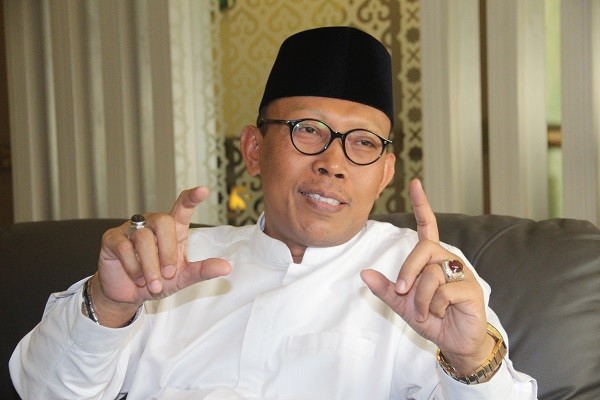BTW: Keep on trashing - jobs depend on it
Before you screech for the editor’s phone number demanding he shred this story and its delinquent author, please read me out.
Leaders around the globe regularly express outrage at the megatonnes of plastic clogging waterways, polluting beaches and despoiling the environment.
No doubt reformers mean what they say, though one recent plea for firearm controls resonates:
When a deranged gunman shot staff at the Capital Gazette in Annapolis, Maryland there was the standard gush of politicians’ sympathy - till an enraged journalist replied: ‘We don’t want your prayers and thoughts - we want your action!’
Even if all the official statements on fixing the plastic problem meant ten less truckloads of trash had been reused or burnt (in an emission-free power-station), we’d still have a pile deeper than Merdeka Square and higher than Monas.
Wow! Let’s throw in the towel (for recycling); this is mission beyond impossible, like getting kids to stop texting. The legend of King Canute offers a moving example of the stupidity of confronting forces bigger than ourselves .
The 11th century ruler of the North Sea Kingdoms, seemingly reincarnated in Washington, is said to have ordered the incoming tide to halt.
This is an early example of fake news, as academics say the tale is a load of old rubbish - but, like the White House press corps, historians aren’t to be trusted. What we can report for certain is that the beach wasn’t piled with plastic. Had that been the case the tide might have responded to the regal edict.
My duty to personal health includes circumnavigating our suburb. Every dawn I encounter men in yellow uniforms stenciled Petugas Kebersihan, (janitors), one for every kilometer plodded.
This army of street sweepers soldiers on, seven-days a week, and still loses the battle. Before they knock off, the sidewalks they cleaned are already splattered with garbage tossed by the uncaring.
The workers’ lives are like Sisyphus, eternally doomed to push a rock uphill which then rolls down - but at least it’s a job.
Now imagine if the polluters reformed and took their trash home. Then there’s be no work for the PK crew and their low-tech gear.
They use long-handled brushwood brooms, the type common in Canute’s century and handy as pre-Airbus transport for witches. The best besoms come from kampong crafters; no doctorate is needed to deduce that when demand drops, jobs tumble.
The Central Statistics Agency reckons more than seven million are unemployed, and many more under-employed.
So it would be irresponsible to increase that number by chucking road gangs on the economy’s scrap heap - the logical outcome should we stop littering the highways and creeks.
The other victims would be pemulung, the men and women who rise earlier than the PK to scavenge anything salable. If we reused rubbish ourselves they’d also be elbowed aside by progress.
Let’s throw down the gauntlet (and pick it up again). Ignore the naysayers and run a national campaign to change behavior. There’s a line in the national anthem about ‘our beloved country’. Time to love, not just sing.
Mission impossible? Not so. Second President Soeharto’s prolonged and intensive Keluarga Berencana family planning program pulled the brake on runaway population growth.
That was in an autocracy. With a democracy electors can chose to ignore urgings unenforced by laws. Absent is the political will.
The default position is to do nothing. Eventually nature will adapt. A new organism will evolve, as we did, from the primeval slime, and devour the discards.
The process is already underway. It’s no longer possible to see plastic floating on Tondano, the largest lake in North Sulawesi.
That’s because it’s smothered by a green carpet of eceng gondok, the water hyacinth that spreads faster than rumors in an election year.
OK, it’s still pollution and killing fish; but at least it’s natural. \\
First published in The Jakarta Post Saturday 22 September


